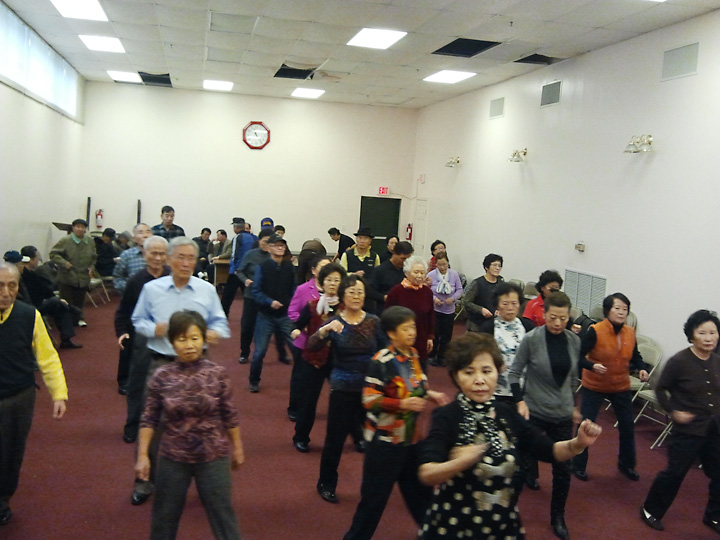Elderly immigrants are among southeastern Pennsylvania’s most vulnerable residents, and providing cost-effective, culturally and linguistically targeted services for this population is a pressing challenge facing nonprofits in the Philadelphia region. Southeastern Pennsylvania’s Asian population increased by 58% in the past 10 years according to U.S. census data, much faster than the 5% growth in the region’s population. The Asian American community’s demographic expansion tells a story of vibrant, growing communities; however, a corresponding increase in the needs of the most vulnerable, particularly the elderly, has accompanied this growth. Asian seniors are more likely than other seniors to face language and cultural barriers in accessing needed social services including health information, public benefits, housing, socialization and recreation activities and transportation. While only 12% of seniors in the United States are immigrants, 81% of Asian seniors were foreign-born. Additionally, 60% of Asian seniors report speaking English “less than well” compared with 8% of all seniors, and 12.5% live below the poverty line compared to 10% of seniors nationwide (Asian American Federation 2009). Asian seniors are thus more likely than other seniors to encounter linguistic and social isolation and live in poverty.
Despite the Asian American community’s growth, few senior centers, government agencies and other social service agencies in the region have the linguistic and cultural skills necessary to meet the needs of Asian seniors. Additionally, nonprofits serving Asian seniors in the region are often fragmented and lack the financial resources to offer high-quality programming for Asian seniors.
This paper will explore how strategic alliances between nonprofits serving the Asian American community can expand linguistically and culturally targeted programming for Asian seniors. Penn Asian Senior Services (PASSi), Pennsylvania’s first and largest nonprofit home care agency serving Asian seniors, entered a strategic alliance with the Korean Senior Association of Greater Philadelphia (KSAGP) to better serve Korean seniors.
PASSi has established trust between southeastern Pennsylvania’s Korean community and its 13 bilingual, skilled administrative staff capable of supporting programming for Korean seniors. PASSi’s mission is to support the well-being of ailing Asian American seniors disadvantaged by language and cultural barriers, and 100% of the Asian seniors PASSi serves are low-income. PASSi currently provides home care to 393 frail, elderly Asian Americans, approximately 100 of whom are Korean seniors.
KSCAGP is a nonprofit organization led by Korean seniors that was founded in 1971 to meet the needs of Philadelphia’s growing number of Korean seniors struggling to adapt to life in the United States with limited financial resources. With more than 60 active members, KSCAGP offers weekly senior programming that educates seniors about American culture and improves their English skills; organizes interactive workshops on a variety of health, civic and social topics; and offers free music and dancing classes.
KSCAGP initially relied on donations from small Korean-owned businesses to fund its operations and weekly senior programming. Since the 2008 recession, KSCAGP has found it difficult to raise funds for its weekly senior programming from the local Korean business community. Additionally, KSCAGP lacks any paid staff and its leadership speaks limited English. KSCAP thus lacks the administrative capacity to secure other funding streams and is not equipped to meet the growing demand for senior programs among low-income Korean seniors in Philadelphia.
PASSi and KSCAGP secured a $20,000 Targeted Investment Grant from the United Way of Greater Philadelphia and Southern New Jersey to fund a strategic alliance focusing on joint programming for Korean seniors. PASSi and KSCAGP share the goal of assisting English-limited Korean seniors in Philadelphia and have a long history of collaboration. The United Way funding allowed the organizations to expand an existing partnership and create a strategic alliance that has increased the capacity of both organizations to serve Korean seniors.



